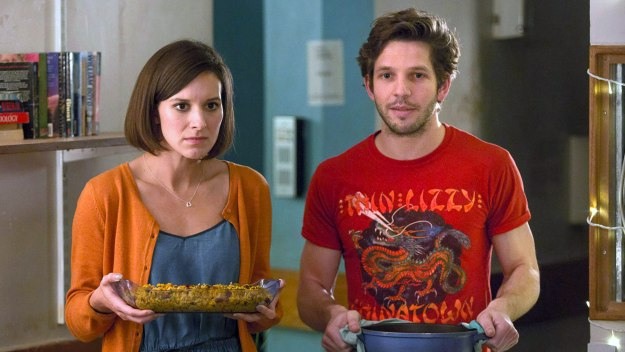The Delayed Maturity of ‘Crashing’
 |
We see an arrested development in the characters, despite the fact that most of them are in their late twenties to early thirties. They’re living in a middle ground between youth and maturity, and although this has been put on them by their living conditions and the restrictions around them, they also display a certain reluctance to grow up, which I think is represented best in the character of Anthony and his deliberation between the two main women in his life – his ‘anal’ fiancé Kate, or his life-long slacker best friend Lulu.
We see a fetishization of youth in both Anthony and Lulu. This is something that we see a lot of in today’s young adult culture, where we are all experiencing an extended childhood caused by the state of society, whether it’s the housing crisis, the pandemic, or unemployment. It has inhibited a whole generation’s ability to grow and mature, like a goldfish stuck in a bowl and having its growth stunted as a result.
While his fiancé is a proper ‘adult’, with a corporate job and plans for family life, Anthony is stuck in the middle – he’s not in a high-ranking office environment, but he’s also not an unemployed slob like Lulu. He works in a middle of the road restaurant, with a semi-mature vibe about him demonstrated in his ability to cook delicious meals for the rest of the housemates.
Lulu represents the extended childhood that Anthony, and people like him, are both desperate to grow away from, and desperate to return to. Anthony and Lulu fondly recall the times they spent getting wasted all night. However, it is almost impossible to fully step away from this youth environment of smoking, binge drinking and wasting time, because the characters can’t afford a ‘proper’ house or place to live, which is seen as a signifier of maturity and adulthood. So we see Kate, who truly wants to grow up, putting on a sort of performance of adulthood that is seen by the other characters as ‘anal’ and overbearing – which it is.
Lulu, on the other hand, is a binge drinker, is unable to perform basic adult tasks like buying a duvet or holding down a job. She has no life plan, and carries a ukulele, with Anthony remarking that the onesie she’s wearing one day makes her look like ‘a child’. However, it’s clear that he’s attracted to this – showing the fetishization of youth and childhood which, without the proper room to grow, young adults will end up yearning to return to.
Kate is jealous of Lulu’s childishness because she knows Anthony is attracted to it. She wants to make a life for herself, but Anthony isn’t too sure; does he want to grow up and get married, or stay a child and play in the mud with Lulu?
This isn’t just a storyline about a man stuck between two women. It displays how our culture, particularly in big cities with housing problems, has resulted in this Peter Pan-esque ethos of extended childhood, an adaption to our situation. The characters are like teenagers, with house parties and crushes and jealous infatuations. Their poor impulse control and arrested development is a sign of the times; that a whole generation is being stifled, and without proper room to stretch and grow, reverting back to childhood behaviour and play.




Comments
Post a Comment